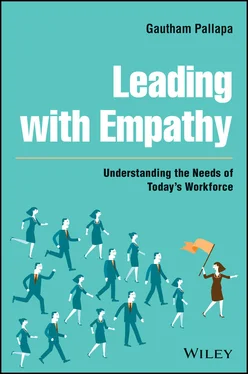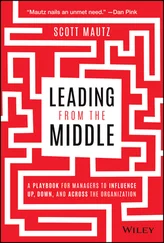While the COVID-19 pandemic raged on worldwide, the immediate mental health impact of this collective trauma is coming into focus even as the outlook for long-term psychological effects remains considerably fuzzier.
Are we experiencing a pandemic of mental illness? Much has been reported about the ill-termed “mental health pandemic” that seems to be surging through the United States and other countries in lockstep with lockdowns and the death, societal disruption, and economic devastation of the viral pandemic. Many experts have sounded the alarm for an approaching tsunami of psychological maladies that could sink an already overburdened mental healthcare system.
A growing cache of data seem to bear out those fears. A recent population survey conducted in April and May found a threefold increase in depression since the pandemic began. 19 The researchers examined mental health problems relative to 13 pandemic-specific stressors, including loss of a job, death of someone close to you due to COVID-19, and financial problems. The more stressors people reported, the more likely they were to also report symptoms of anxiety and depression. Other studies show similar rises. From April to October of 2020, the National Center for Health Statistics partnered with the Census Bureau and tracked anxiety and depression symptoms among Americans in household pulse surveys, finding a sharp rise in both. 20
Impact on Families and Society
The economic and social disruption caused by the COVID-19 pandemic affected millions of people worldwide. It rattled pretty much every segment of life, including education, economy, religion, employment, tourism, entertainment, sports, food, security, and posed significant challenges to the global economy. Research has shown the pandemic's significant impact on the psychological well-being of families and overall society and how it has changed the way we work, eat, and interact. Social distancing has led us to a more virtual experience both personally and professionally. Let's take an in-depth look at how the pandemic has affected families and society over the last year.
COVID-19 was a seismic shock for everyone, even for the financially stable families who did not suffer any income loss from lockdown closures and social distancing. Many people have lost their jobs; some are working on remote jobs from home, and others associated with healthcare cannot meet their families to protect them from virus exposure. Families living in poverty with dependent children and less-educated parents were more adversely affected by the pandemic's emotional, physical, and financial implications than others.
Many single-income families were hit hard when their livelihood was affected by the lockdown and shelter-in-place. Many of these families did not have savings to fall back on, having lived paycheck to paycheck on a minimum wage that hardly covered the inflation rate or price increase of commodities due to the pandemic. Families have also struggled with the additional costs of raising their children at home, most notably from closed schools and childcare. The financial hardships during the pandemic have forced people to make significant changes in everyday routines and with limited resources.
Increased Responsibilities
Traditionally, women were already carrying the primary load as caregivers before the onset of the pandemic. According to a Pew Research Center survey conducted in the United States, 21 59 percent of women reported that they perform more household chores than their spouse or partner. The same study revealed that only 46 percent share equal domestic responsibilities with their partner. These numbers are worse in developing countries or nations with poor women's rights. 22
With the abrupt crises and closure of schools and daycare centers worldwide, the workload dramatically increased for women. As with all times of stress and anxiety, families and the community at large found comfort in the caregiving nature of women. Women are expected to take care of their families and household duties without any additional support. Some men are now more involved with their families, but that percentage is still low overall.
Difficulty in Achieving Work-Life Balance
The pandemic has allowed men to put their share in childcare and housework, and that's the best way to achieve work and family life balance during these challenging times. Parents juggling a full-time job and homeschooling find it challenging to balance their work schedules and their kids' homeschooling schedules. Furthermore, there is a vast discrepancy in the quality and effectiveness of homeschooling, which depends on the parent's education level, language, physical and psychological health, and availability of computer skills along with Internet connectivity.
Reliance on homeschooling had a massive negative impact on children, particularly for underprivileged communities. Virtual schooling was exceedingly challenging for children with special needs and their caregivers. Children experienced considerable stress and anxiety adapting to new communication methods with their teachers, video conferencing solutions, and loss of physical interaction in a familiar setting (school classrooms). They could not spend time with their peers for group learning or go to recess to play with their friends. Child development has been severely impaired due to virtual schooling. We may not know the true long-lasting effects of this forced isolation on the world's children for many years.
The COVID-19 crises created a baby boom with millions of people stuck at home cut off from reproductive healthcare. Around 140 million babies were born worldwide in 2020. 23 The United Nations has already predicted that about 47 million women were unable to access contraceptive measures during the lockdown, 24 leading to unwanted pregnancies. Just as expected, after roughly 10 months into the lockdown, there was a huge baby boom worldwide. 25 Although social distancing urged partners to meet less and financial instability caused many families to stop having children, the lockdown has led to increased planned and unplanned pregnancies.
Despite the fact that there was a considerable spike in birthrates throughout the world, it was a significant concern for poverty-stricken and underdeveloped nations. 26 In India, about 1.85 million women were unable to access contraception and safe abortions during the lockdown. Pandemic-linked deaths in children are projected to be at least 10,000 per month in Latin America, South Asia, and sub-Saharan Africa. 27 A study from the Standing Together for Nutrition Consortium predicted that over 12 million children would suffer from undernutrition, wasting, or severe malnutrition due to the pandemic. 28
COVID-19 has severely affected many communities. In particular, vulnerable communities with entrenched poverty, limited employment flexibility, and overcrowded housing faced significant challenges. The health and economic impacts of the virus are being borne disproportionately by poor people. They continue to affect the most vulnerable populations, including older citizens, disabled people, youth, and Indigenous people. Other people at a disadvantage include the homeless, who are more exposed to the danger of the virus in tent camps and other close quarters. Similarly, refugees and migrants also stand to suffer from the pandemic and its aftermath.
COVID-19 disrupted people's social relationships and the ways they used to connect with their loved ones. Some people felt isolated physically and emotionally, and others felt more connected to their families, friends, and social networks than they typically do. The ban on personal gatherings promoted the unconventional activities of maintaining social distancing, such as birthday parades on birthday parties or balcony sing-along for concerts. Awkward socially distanced get-togethers in cul-de-sacs or front yards substituted socializing at bars or favorite hangouts. Driveway or drive-by conversations replaced meeting friends and chatting. Children were continuously cautioned to be six feet apart, don their masks, and not have physical contact during playdates.
Читать дальше












